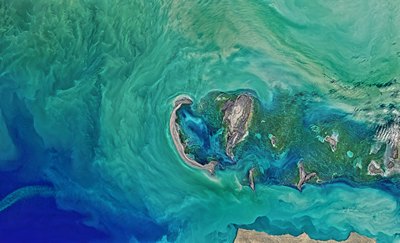Documents
This section features public documents and files uploaded by the stakeholders and custodians of the Caspian Sea environment.
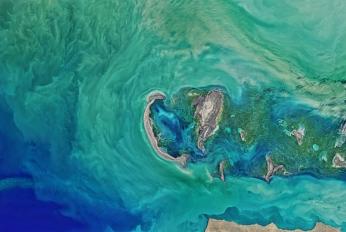 Caspian Environment Monitoring Programme - 2012Mon, 20/02/2023 - 14:41Unified, Integrated and Affordable Caspian Environment Monitoring Programme Among the Contracting Parties to the Framework Convention for the Protection of the Marine Environment of the Caspian Sea was welcomed at COP4, Moscow, Russian Federation, 10-12 December 2012. The objectives of the EMP to develop a framework providi
Caspian Environment Monitoring Programme - 2012Mon, 20/02/2023 - 14:41Unified, Integrated and Affordable Caspian Environment Monitoring Programme Among the Contracting Parties to the Framework Convention for the Protection of the Marine Environment of the Caspian Sea was welcomed at COP4, Moscow, Russian Federation, 10-12 December 2012. The objectives of the EMP to develop a framework providi
- Description
Unified, Integrated and Affordable Caspian Environment Monitoring Programme Among the Contracting Parties to the Framework Convention for the Protection of the Marine Environment of the Caspian Sea was welcomed at COP4, Moscow, Russian Federation, 10-12 December 2012.
The objectives of the EMP to develop a framework providing the necessary data and information on the Caspian environment in order to; initially provide data on the state of the Caspian environment, highlight pollution problems, provide biological related data which will support the broad objective of tracking changes of the health and diversity of ecosystems in, and adjacent to, the Caspian Sea.
- Attached documents
- Metadata
- Year
- 2012
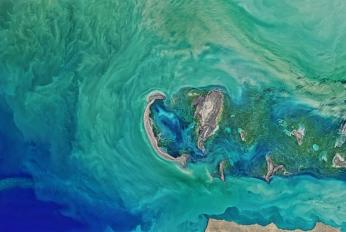 Draft Caspian Sea Plan Concerning Regional Cooperation in Combating Oil Pollution in Cases of EmergencyMon, 20/02/2023 - 14:36Draft Caspian Sea Plan Concerning Regional Cooperation in Combating Oil Pollution in Cases of Emergency (Aktau Protocol Implementation Plan). The arrangements in the Aktau Protocol Implementation Plan are intended to facilitate the development of joint response operations and to co-ordinate the use of the available resource
Draft Caspian Sea Plan Concerning Regional Cooperation in Combating Oil Pollution in Cases of EmergencyMon, 20/02/2023 - 14:36Draft Caspian Sea Plan Concerning Regional Cooperation in Combating Oil Pollution in Cases of Emergency (Aktau Protocol Implementation Plan). The arrangements in the Aktau Protocol Implementation Plan are intended to facilitate the development of joint response operations and to co-ordinate the use of the available resource
- Description
Draft Caspian Sea Plan Concerning Regional Cooperation in Combating Oil Pollution in Cases of Emergency (Aktau Protocol Implementation Plan).
The arrangements in the Aktau Protocol Implementation Plan are intended to facilitate the development of joint response operations and to co-ordinate the use of the available resources in the region. They also outline in advance the financial conditions and administrative clauses of the actions, thus permitting rapid intervention in case of emergency by removing the need for lengthy negotiations during the course of the event.
- Attached documents
- Metadata
- Year
- 2019
 Strategy for Civil Society Engagement in the Caspian Sea Marine EnvironmentMon, 20/02/2023 - 14:22Strategy for Civil Society Engagement in the Protection of the Caspian Sea Marine Environment was presented at the COP3 in Aktau, Kazakhstan, 10–12 August 2011. It contains an analysis and a number of recommendations to improve access to information and participation in decision-making and action towards the implementation o
Strategy for Civil Society Engagement in the Caspian Sea Marine EnvironmentMon, 20/02/2023 - 14:22Strategy for Civil Society Engagement in the Protection of the Caspian Sea Marine Environment was presented at the COP3 in Aktau, Kazakhstan, 10–12 August 2011. It contains an analysis and a number of recommendations to improve access to information and participation in decision-making and action towards the implementation o
- Description
Strategy for Civil Society Engagement in the Protection of the Caspian Sea Marine Environment was presented at the COP3 in Aktau, Kazakhstan, 10–12 August 2011. It contains an analysis and a number of recommendations to improve access to information and participation in decision-making and action towards the implementation of the Tehran Convention and its Protocols at the local, national and regional levels.
- Attached documents
- Metadata
- Year
- 2011
 Strategic Convention Action Programme (SCAP)Mon, 20/02/2023 - 14:16In accordance with Article 18 (2) of the Tehran Convention, the Parties developed the Strategic Convention Action Programme (SCAP). The SCAP is a comprehensive, long-term agenda and framework for the implementation of the Tehran Convention and its Protocols over a period of 10 years. It was adopted at COP 2 in Tehran, Iran,
Strategic Convention Action Programme (SCAP)Mon, 20/02/2023 - 14:16In accordance with Article 18 (2) of the Tehran Convention, the Parties developed the Strategic Convention Action Programme (SCAP). The SCAP is a comprehensive, long-term agenda and framework for the implementation of the Tehran Convention and its Protocols over a period of 10 years. It was adopted at COP 2 in Tehran, Iran,
- Description
In accordance with Article 18 (2) of the Tehran Convention, the Parties developed the Strategic Convention Action Programme (SCAP). The SCAP is a comprehensive, long-term agenda and framework for the implementation of the Tehran Convention and its Protocols over a period of 10 years. It was adopted at COP 2 in Tehran, Iran, 10-12 November 2008.
- Attached documents
- Metadata
- Year
- 2008
 Rules of Procedure of the Tehran ConventionMon, 20/02/2023 - 14:10Rules of Procedure for the Conference of the Parties to the Framework Convention for the Protection of the Marine Environment of the Caspian Sea. Adopted at COP 2 in Tehran, Iran, 10-12 November 2008.
Rules of Procedure of the Tehran ConventionMon, 20/02/2023 - 14:10Rules of Procedure for the Conference of the Parties to the Framework Convention for the Protection of the Marine Environment of the Caspian Sea. Adopted at COP 2 in Tehran, Iran, 10-12 November 2008.
- Description
Rules of Procedure for the Conference of the Parties to the Framework Convention for the Protection of the Marine Environment of the Caspian Sea. Adopted at COP 2 in Tehran, Iran, 10-12 November 2008.
- Attached documents
- Metadata
- Year
- 2008
 Financial Rules for the Administration of the Trust Fund for the Tehran ConventionMon, 20/02/2023 - 13:36Financial Rules for the Administration of the Trust Fund for the Framework Convention for the Protection of the Marine Environment of the Caspian Sea. Adopted at COP 1 in Baku, Azerbaijan, 23-25 May 2007.
Financial Rules for the Administration of the Trust Fund for the Tehran ConventionMon, 20/02/2023 - 13:36Financial Rules for the Administration of the Trust Fund for the Framework Convention for the Protection of the Marine Environment of the Caspian Sea. Adopted at COP 1 in Baku, Azerbaijan, 23-25 May 2007.
- Description
Financial Rules for the Administration of the Trust Fund for the Framework Convention for the Protection of the Marine Environment of the Caspian Sea.
Adopted at COP 1 in Baku, Azerbaijan, 23-25 May 2007.
- Attached documents
- Metadata
- Year
- 2007
 Draft Caspian Regional Action Plan on Marine LitterMon, 20/02/2023 - 12:33Marine litter, including plastic and microplastic, is a global concern affecting all the oceans and seas of the world. It poses environmental, economic, health and aesthetic problems that are rooted in poor solid waste management practices, lack of infrastructure, indiscriminate human activities and behaviours and an inadequ
Draft Caspian Regional Action Plan on Marine LitterMon, 20/02/2023 - 12:33Marine litter, including plastic and microplastic, is a global concern affecting all the oceans and seas of the world. It poses environmental, economic, health and aesthetic problems that are rooted in poor solid waste management practices, lack of infrastructure, indiscriminate human activities and behaviours and an inadequ
- Description
Marine litter, including plastic and microplastic, is a global concern affecting all the oceans and seas of the world. It poses environmental, economic, health and aesthetic problems that are rooted in poor solid waste management practices, lack of infrastructure, indiscriminate human activities and behaviours and an inadequate understanding on the part of the public of the potential consequences of their actions. Development of the Caspian Marine Litter Action Plan is embodied in the Moscow Protocol against pollution from land-based sources.
The preparation of the draft Caspian Regional Marine Litter Action Plan (CRMLAP) was undertaken by the national experts from the Caspian Sea littoral states and an international expert. For that purpose, five National Experts were contracted to provide their national inputs and contributions for the development of the Caspian Marine Litter Action Plan where the International Expert fully facilitates the development of the Caspian Marine Litter Action Plan.
- Attached documents
- Metadata
- Year
- 2020
 Agreement on Cooperation in the Field of Hydrometeorology of the Caspian SeaMon, 20/02/2023 - 10:04Agreement on Cooperation in the Field of Hydrometeorology of the Caspian Sea was signed on 29 September 2014 in Astrakhan, Russian Federation, during the Fourth Caspian Summit. The entry into force of the Agreement opens new opportunities not only for information exchange, but also for the interaction in other fields of hyd
Agreement on Cooperation in the Field of Hydrometeorology of the Caspian SeaMon, 20/02/2023 - 10:04Agreement on Cooperation in the Field of Hydrometeorology of the Caspian Sea was signed on 29 September 2014 in Astrakhan, Russian Federation, during the Fourth Caspian Summit. The entry into force of the Agreement opens new opportunities not only for information exchange, but also for the interaction in other fields of hyd
- Description
Agreement on Cooperation in the Field of Hydrometeorology of the Caspian Sea was signed on 29 September 2014 in Astrakhan, Russian Federation, during the Fourth Caspian Summit.
The entry into force of the Agreement opens new opportunities not only for information exchange, but also for the interaction in other fields of hydrometeorology ranging from carrying out of observations to forecasting of weather and climate.
The final output of this cooperation is ensuring the safety of navigation and other activities in the water area and on the coast, which depend on changes of weather and climate. Everyone working in the Caspian Sea needs accurate hydrometeorological forecasts, timely storm alerts and the information required to design hydraulic structures.
Alongside with this, hydrometeorological information is essential for environmental protection, conservation of Caspian Sea biodiversity and efficient use of its natural resources. Now hydrometeorologists and ecologists may interact more closely: due to the signing of the Agreement there emerged a legal basis for the cooperation with the Tehran Convention.
- Attached documents
- Metadata
- Year
- 2014
 Agreement on Cooperation in Emergency Prevention and response in the Caspian SeaMon, 20/02/2023 - 09:46Agreement on Cooperation in Emergency Prevention and response in the Caspian Sea was signed on 29 September 2014 in Astrakhan, Russian Federation, during the Fourth Caspian Summit. The cooperation in the field of civil protection in the Caspian Sea will contribute to disaster risk reduction and minimization of negative cons
Agreement on Cooperation in Emergency Prevention and response in the Caspian SeaMon, 20/02/2023 - 09:46Agreement on Cooperation in Emergency Prevention and response in the Caspian Sea was signed on 29 September 2014 in Astrakhan, Russian Federation, during the Fourth Caspian Summit. The cooperation in the field of civil protection in the Caspian Sea will contribute to disaster risk reduction and minimization of negative cons
- Description
Agreement on Cooperation in Emergency Prevention and response in the Caspian Sea was signed on 29 September 2014 in Astrakhan, Russian Federation, during the Fourth Caspian Summit.
The cooperation in the field of civil protection in the Caspian Sea will contribute to disaster risk reduction and minimization of negative consequences of emergency situations of natural and man-made disasters in the Caspian Sea. The agreement allows informing about the risk of an emergency, which could affect the state on the other hand, sharing experiences in the field of forecasting and monitoring of emergency situations, as well as training of the population to act in their threat and occurrence as well as to train and prepare experts in the field of civil protection educational institutions of member states.
The document is presented in all languages.
- Attached documents
- Metadata
- Year
- 2014
 Agreement on Conservation and Rational Use of the Aquatic Biological Resources of the Caspian SeaMon, 20/02/2023 - 09:29Agreement on the conservation and sustainable use of aquatic biological resources of the Caspian Sea was signed on 29 September 2014 in Astrakhan, Russian Federation, during the Fourth Caspian Summit. The Parties agree upon cooperation on (i) giving priority to the conservation of aquatic biological resources, (ii) sustaina
Agreement on Conservation and Rational Use of the Aquatic Biological Resources of the Caspian SeaMon, 20/02/2023 - 09:29Agreement on the conservation and sustainable use of aquatic biological resources of the Caspian Sea was signed on 29 September 2014 in Astrakhan, Russian Federation, during the Fourth Caspian Summit. The Parties agree upon cooperation on (i) giving priority to the conservation of aquatic biological resources, (ii) sustaina
- Description
Agreement on the conservation and sustainable use of aquatic biological resources of the Caspian Sea was signed on 29 September 2014 in Astrakhan, Russian Federation, during the Fourth Caspian Summit.
The Parties agree upon cooperation on (i) giving priority to the conservation of aquatic biological resources, (ii) sustainable use of aquatic biological resources, (iii) application of accepted international rules, (iv) ecosystem preservation and biodiversity protection, (v) conservation of aquatic biological resources in scientific research and use this as a basis of common aquatic biological resources management, and (vi) taking measures for sustainable use and conservation of aquatic biological resources in the Caspian Sea and for management of common aquatic biological resources. The Parties shall develop the cooperation by research studies, data collection, exchange of scientific and technical documents, experience and information, preventive measures for illegal, unreported and unregulated fishing and by development of short, medium and long-term programs for aquatic production and for their reintroduction into their natural habitats.
The document is presented in all languages.
- Attached documents
- Metadata
- Year
- 2014
 Convention on the legal status of the Caspian SeaMon, 20/02/2023 - 08:56The Convention on the legal status of the Caspian Sea is a treaty signed in Aktau, Kazakhstan, on 12 August 2018 by the presidents of Russia, Kazakhstan, Azerbaijan, Iran and Turkmenistan.
Convention on the legal status of the Caspian SeaMon, 20/02/2023 - 08:56The Convention on the legal status of the Caspian Sea is a treaty signed in Aktau, Kazakhstan, on 12 August 2018 by the presidents of Russia, Kazakhstan, Azerbaijan, Iran and Turkmenistan.
- Description
The Convention on the legal status of the Caspian Sea is a treaty signed in Aktau, Kazakhstan, on 12 August 2018 by the presidents of Russia, Kazakhstan, Azerbaijan, Iran and Turkmenistan.
- Attached documents
- Metadata
- Year
- 2018
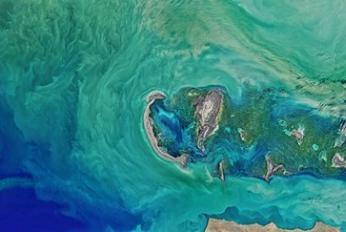 Recent Oil Spill Preparedness Developments in the Caspian Sea RegionMon, 23/04/2018 - 19:12Natural seeps and easily exploited surface deposits of crude oil on land have been utilized in the Caspian Sea region earlier than 300 BC. The modern-day picture is a region with oil reserves of global importance, facing a key challenge of the transportation of crude oil to markets. There has been considerable focus on devel
Recent Oil Spill Preparedness Developments in the Caspian Sea RegionMon, 23/04/2018 - 19:12Natural seeps and easily exploited surface deposits of crude oil on land have been utilized in the Caspian Sea region earlier than 300 BC. The modern-day picture is a region with oil reserves of global importance, facing a key challenge of the transportation of crude oil to markets. There has been considerable focus on devel
- Description
Natural seeps and easily exploited surface deposits of crude oil on land have been utilized in the Caspian Sea region earlier than 300 BC. The modern-day picture is a region with oil reserves of global importance, facing a key challenge of the transportation of crude oil to markets. There has been considerable focus on developing oil spill preparedness in the Caspian Sea region. This has involved the governments, regional bodies, the oil industry and a range of other stakeholders and international organizations (notably UNEP, IMO and OSCE). This effort is in addition to the primary focus on preventing spills.
Countries are developing and implementing National Contingency Plans in order to have effective national response systems, which also act as the basis for regional cooperation.
- Attached documents
- Metadata
- Year
- 2015
Document
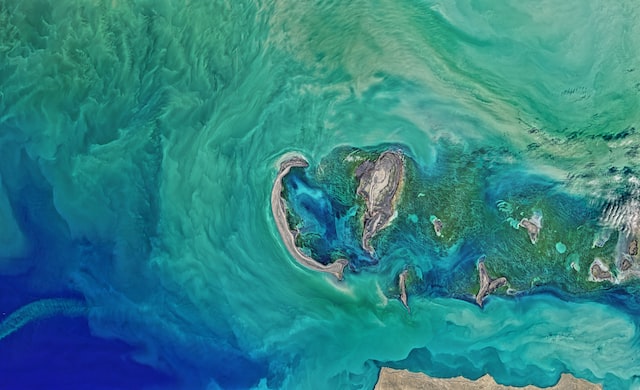
Caspian Environment Monitoring Programme - 2012
Document
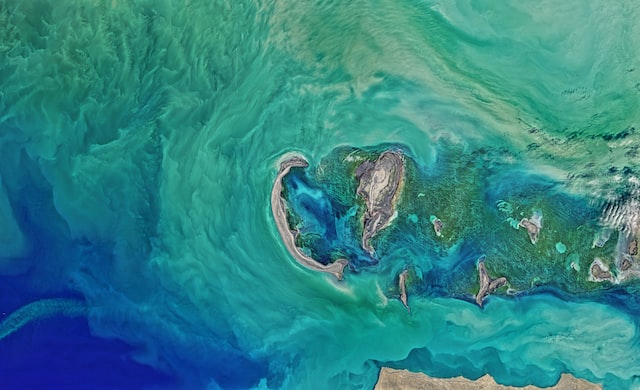
Draft Caspian Sea Plan Concerning Regional Cooperation in Combating Oil Pollution in Cases of Emergency
Document

Strategy for Civil Society Engagement in the Caspian Sea Marine Environment
Document

Strategic Convention Action Programme (SCAP)
Document

Rules of Procedure of the Tehran Convention
Document

Financial Rules for the Administration of the Trust Fund for the Tehran Convention
Document

Draft Caspian Regional Action Plan on Marine Litter
Document

Agreement on Cooperation in the Field of Hydrometeorology of the Caspian Sea
Document

Agreement on Cooperation in Emergency Prevention and response in the Caspian Sea
Document

Agreement on Conservation and Rational Use of the Aquatic Biological Resources of the Caspian Sea
Document

Convention on the legal status of the Caspian Sea
Document
